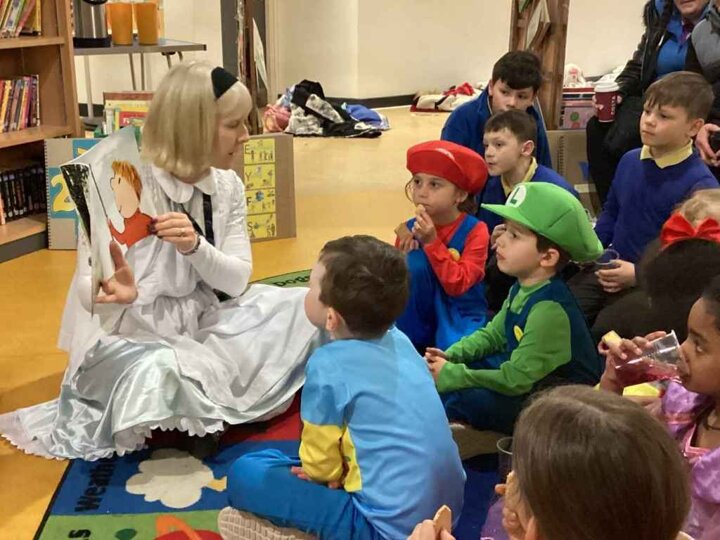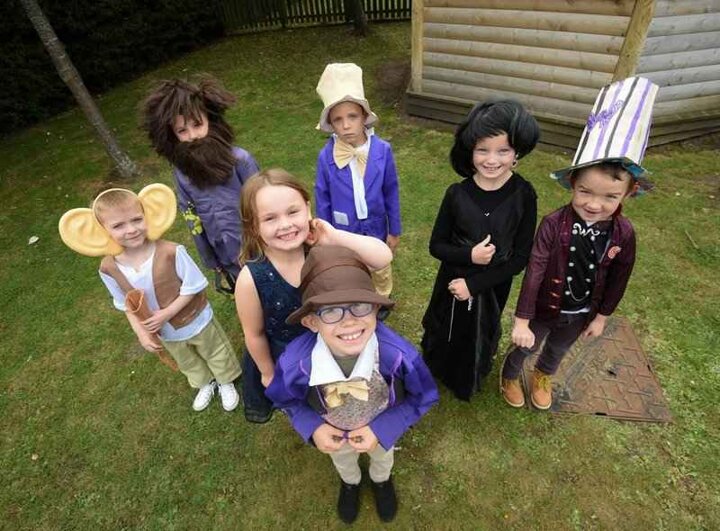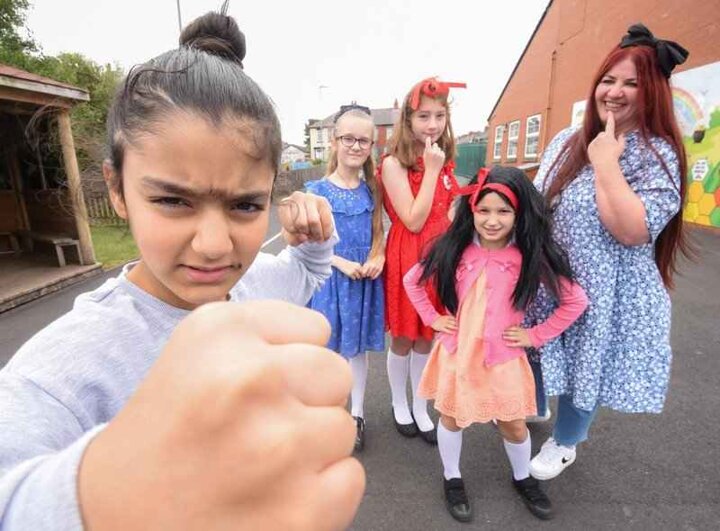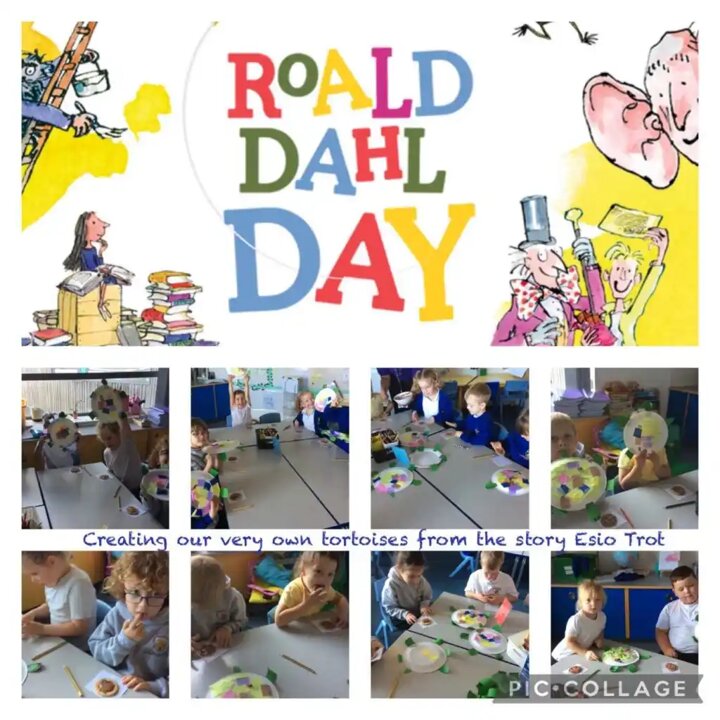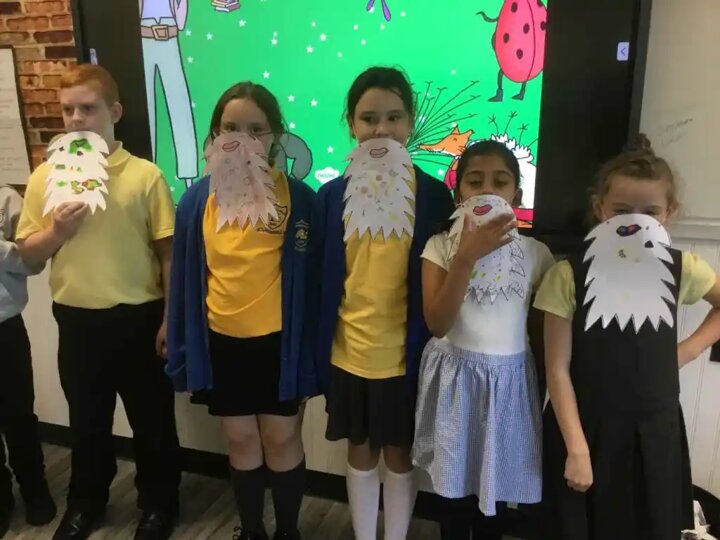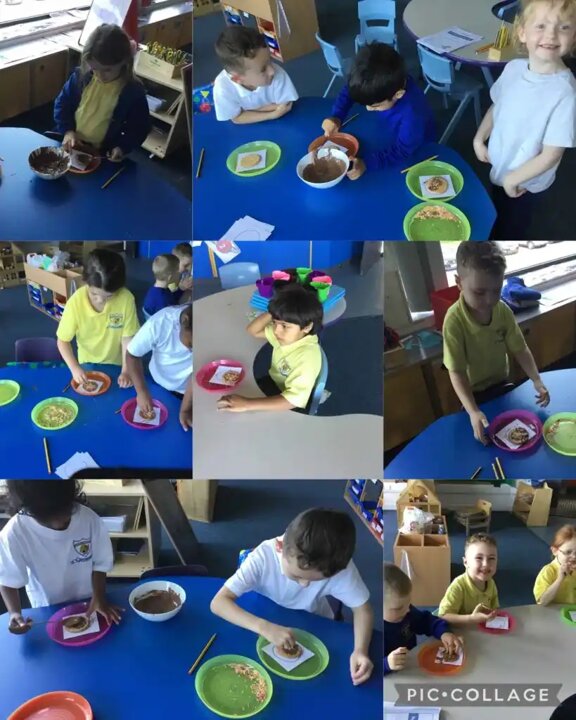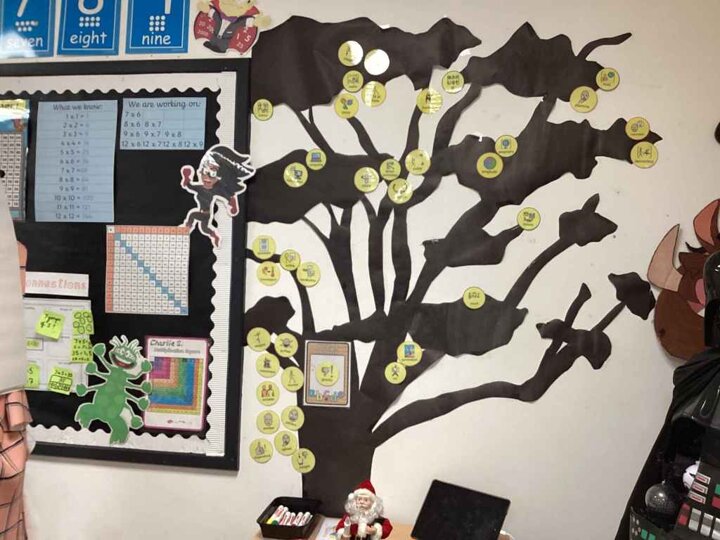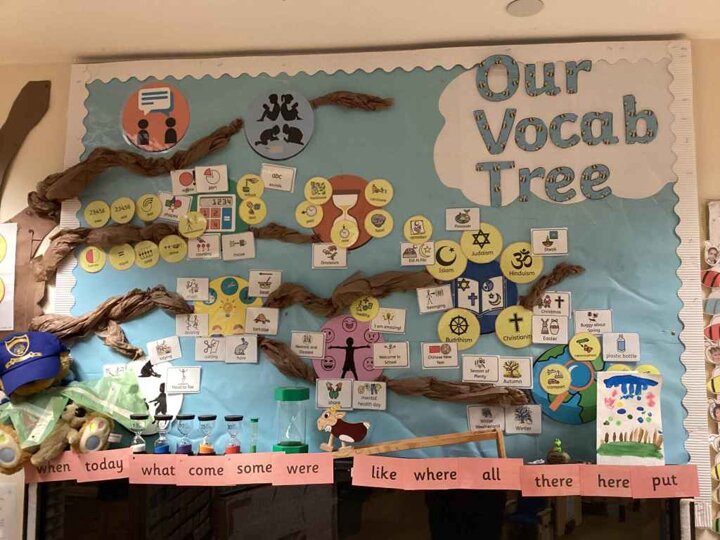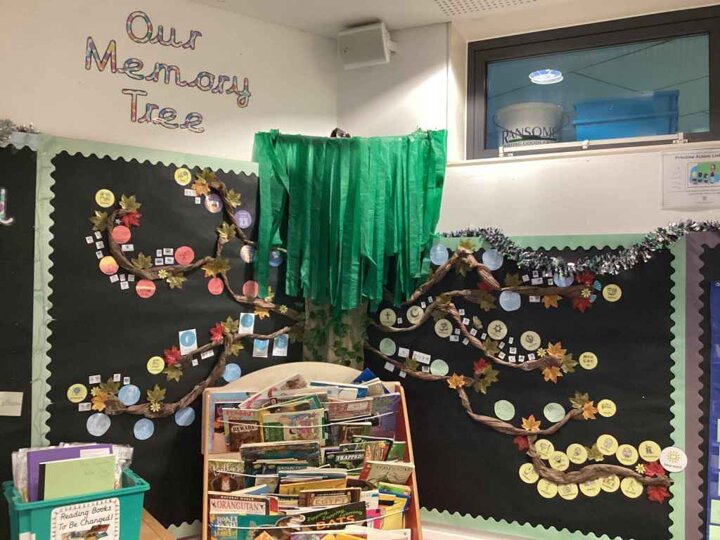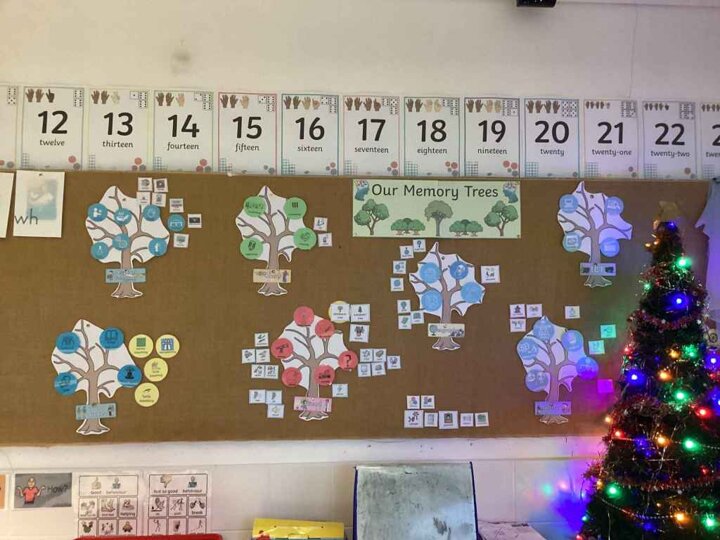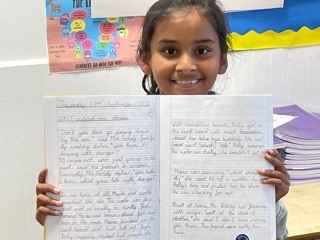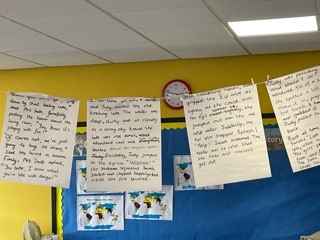
Early Reading (Phonics)
The Vision of Reading
At Devonshire, we are committed to providing great reading provision and developing pupils’ proficiency in, and love of, reading. We ensure that all children have the skills, knowledge and understanding to become confident and enthusiastic readers and writers.
We believe that high-quality phonics teaching improves literacy levels and gives all children a solid base on which to build and develop their reading habits so that they read widely and often.
The programme we have chosen supports our intentions to teach children to read and write independently so that they are able to access a broad and exciting curriculum and flourish as learners throughout their time at our school.

How We Teach Reading
Through daily, systematic and consistent high-quality phonics teaching, children learn to blend and segment words for reading and spelling. To allow our children to develop a strong phonic awareness and effective blending, decoding and comprehension skills, we have chosen to use a DfE Validated synthetic phonics programme called FFT Success for All Phonics.
Each session gives an opportunity for children to revisit their previous experience, learn new skills, practise together, apply what they have learned and celebrate their achievements. It follows the teaching principles of:
- Revisit and Review
- Teach and Model
- Practise and Apply
- Celebrate Achievement and Assess
The decodable shared and further readers run alongside the program and match to the phonic sounds that the children have been learning. There are also sets of additional readers available to support children who benefit from texts with reduced length or simplified structure.
Lessons are planned so that children build on their skills sequentially and systematically and will be adapted and modified to meet the differing needs of the children if required.
The phonics programme is part of a comprehensive package of programmes which we use to support a mastery approach to phonics and early reading. The FFT Success for All programmes (Phonics, Shared Reader, Tutoring with the Lightning Squad and Reading Assessment Programme (RAP)) complement each other in highly effective ways and provide the tools that all our staff need to develop competent, fluent early readers, preparing the way for passionate and successful lifelong reading.

Reading at Home
- Access the FFT shared reader parent portal by visiting parents.fft.org.uk (pass code – 4q6vtf).
- Read to your child and always discuss the story you are reading to try to build your child’s comprehension skills and understanding.
- Listen to your child read. Find a quiet time to hear your child read and use lots of praise to encourage them.
- Practise the sounds they know at home.
- Make use of your local library. Children love going to the library and having access to such a huge, diverse range of books.

Useful Websites
- FFT Shared Reader Parent Portal (pass code – 4q6vtf)
- Reading Eggs
- PhonicsPlay

Reading (SfA)
What makes a good reader?
- A good reader actively engages with a text.
- A good reader explores different genres.
- A good reader monitors their understanding of a text.
- A good reader can visualise what is happening.
- A good reader anticipates what happens next.
- A good reader uses expression and punctuation when they read.
- A good reader uses their GPCs to decode a text.
- A good reader reads fluently.
The Vision of Reading
At Devonshire Primary Academy, we pride ourselves in developing a whole school reading culture. We value reading as a key life skill, and are dedicated to enabling our pupils to become lifelong readers in order to navigate their way around the world. It is our belief that our pupils’ successes will be underpinned by their ability to read fluently and skilfully whilst understanding the text read with increasing complexity. We want to develop our children’s imagination to open up a treasure house of wonder and joy for curious young minds.
Intent
We aim to provide children with a language rich environment, high quality texts and inspiring learning opportunities. To ensure a holistic approach to the teaching of reading, we implement the following:
- Children take part in daily reading lessons; SfA (Success for All) where children are exposed to a range of different texts, specific to their reading age. They can demonstrate their understanding and thinking behind these.
- We are fortunate enough to have a wide range of reading books in our school which are regularly updated. All children from Reception to Year 6 choose a reading book. The children choose the book themselves when they are ready to change them.
Our Reading Spine
Our Reading Spine will ensure that each child is able to:
- Gain a life-long enjoyment of reading and books;
- Read accurately, fluently and with understanding;
- Apply a knowledge of structured synthetic phonics in order to decode unfamiliar words with increasing accuracy and speed;
- Be able to read with expression, clarity and confidence;
- Develop a good linguistic knowledge of vocabulary and grammar;
- Read and respond to a wide range of different types of texts;
- Develop a deeper level of emotional intelligence and empathy; and
- Read fluently, and with confidence, in any subject in their forthcoming secondary education and beyond.
Each classroom will have:
- An engaging reading corner, to foster an environment with reading at the heart of learning. The reading corner will consist of a selection of books written by a variety of authors.
- A selection of books which are directly linked to the curriculum areas that they are focusing on. This offers the opportunities for the children to apply their reading skills across the curriculum.
- Story time. Children are read to by their class teacher. Class novels are read aloud by an adult to inspire children's imagination and support their ability to visualise the story.
- The opportunity to visit the school library on a weekly basis. Children choose a book and have the option to change this book weekly or when they have read to the end of the story, should they need a longer period of time. Children may recommend books to each other or it may be a class recommendation.
Furthermore:
- Children who are not yet “free readers”, will work through our school reading scheme; these are levelled books which match the children’s current reading age.
- We expect family at home to read these books with their child and make comments in their child’s reading record.
- “Toe by Toe” and "Reading Quest" are additional reading interventions.
Our aim is to ensure that by the time children leave us to begin secondary school, they are competent readers who can recommend books to their peers, have a thirst for reading a range of genres including poetry, and participate in discussions about books, including evaluating an author’s use of language and the impact this can have on the reader. To ensure this takes place we have a Reading Spine. To view our Reading Spine, please click below.
Reading for Pleasure
At Devonshire, we prioritise reading for pleasure by promoting reading and striving for mastery within the teaching and learning we offer. We have chosen FFT Success for All programmes because they set high reading expectations. The language in the Shared Readers is rich, varied and motivating.
We encourage active reading across the school by:
- Reading to the children every day.
- Offering a rich and diverse range of texts to children; opening their eyes to the world and different cultures.
- Providing book areas in classrooms for children to select and have access to quality texts that are age and stage appropriate.
- Giving every child a home reading record. Parents/carers record a comment to share with staff in school and vice versa to ensure communication between home and school has a positive impact on learning. As the children progress through the school they can choose their own home reader from a reading age appropriate selection.
- Celebrating reading through events, visits and visitors.
Success for All (SfA)
How are children taught SfA?
Children are taught using a range of strategies that form a clear pedagogy (way of teaching) known as ‘Co-operative Learning’.
.jpg)
Five ‘Learning Behaviours’ are introduced and clearly modelled by teachers and support staff. Children understand what is expected and positive feedback encourages them to establish good habits and increases their motivation, enjoyment and self-esteem. This enables them to develop the behaviours essential to be happy, self-sufficient and successful learners.
Children sit in teams of four and are responsible for working together to ensure that every member of the team learns successfully. During teaching sessions, teachers ask children to discuss the answer to every question with their ‘talk partner’, who sits beside them, or the rest of their team. This makes sure that every child is involved in learning, has a prepared answer should the teacher ask them to provide one and helps them to develops essential communication and language skills. When an answer is requested, the child’s name is chosen at random, making sure that every child has equal opportunities for success. Children enjoy this type of learning as it is supportive, and they are explicitly valued and involved. Critically, every child has an equal opportunity to succeed. Positive feedback is key in motivating children and is given for effort.
Consistent, silent classroom management signals foster an ethos of quiet and calm, where all children understand how activities are managed.
FFT – SFA Phonics Skills
SFA Phonics is a 45-60 minute daily session introducing new phonemes and ways to write these. The phonemes are then worked on in a shared reading session to develop blending, segmenting and comprehension skills.
Literacy ‘Wings’ Curriculum Mapping – The Development of Reading Skills in Wings (above the reading age of 7)
Wings is a reading programme for children with a reading age greater than 7 years of age. On average, children start Wings around January in Year 2. The books read by children are exciting and inspirational ‘real’ texts written by well-known authors.
Experienced readers have a strong inner voice that guides their reading and builds comprehension. This process is so automatic that we are usually unaware of these vital skills used every time we read. Before reading a text, we identify the Genre & Links and then we predict the content of the text. For example, if it is a detective book, we know there will be a crime, clues and a culprit, and if it is non-fiction, we know we will gain information. This frames our comprehension. As we read, questions continually enter our minds, (“Why did they do that?”/ “What effect will that have?”) and if we fail to understand a word or a section of text we stop, decode, re-read and try to ‘clarify’ the meaning. We continually and briefly summarise what we have read so far, and then predict again, based on that summary. So, in our detective book a summary night be that the Vicar has been murdered and (based on our questioning) the prediction is that his wife is the culprit. These advanced comprehension skills of Prediction, Clarification, Questioning and Summarising are all explicitly and consistently taught and reinforced in Wings and enable children to develop their own inner voice as readers.
Clarification is a particularly challenging skill for children and so at each level of Wings (2, 3, 4 and 5), we provide a ‘Savvy Reader’ unit consisting of five weeks of lessons focusing on clarification skills. Children’s vocabulary is developed through explicitly teaching ten vocabulary words from the text every week.
Fluency is explicitly taught using a range of strategies focusing on expression to aid comprehension and on increasing reading speed, a skill which is essential if children are to succeed and achieve ‘Greater Depth’ in their Year 6 SATs tests.
Children are taught the additional strategy of categorising comprehension questions into three main types: Copy Cat (the answer is right there on the page), Text Detective (inferential questions which require evidence from the text) and Judge and Jury (the answer is based on personal opinion, which must be sensible and backed by evidence from the text). When children read a comprehension question, they decide what type of question has been asked and then apply the strategies they have learnt to produce an effective answer.
These skills prepare children for success in their Key Stage 2 SATs and support their learning in all other subjects.
Reading at Home
- Read regularly to your child and share stories as a family. Always discuss the stories that you have read to try and build your child’s comprehension skills and understanding.
- Find a quiet time to listen to your child read. Praise their fluency and expression as encouragement will help to build their confidence as a reader.
- Practise repetition of phonic sounds at home.
- Make use of your local library. Children love going to the library and having access to such a huge, diverse range of books.
Useful Websites
E Books:
Resources for Parents and Carers:

Vocabulary
Vision
Our intent is that children at Devonshire Primary Academy will be able to hold meaningful and clear conversations, with a wide-ranging vocabulary that assists them in all forms of communication including reading and writing.
How We Teach Vocabulary
Learning new vocabulary is key to children accessing our curriculum. In order to support the growth of children’s spoken and written vocabulary, Years 1 to 6 take part in bi-weekly sessions around our school word of the week. In the EYFS, children take part in daily vocabulary sessions covering key vocabulary and concepts that match our curriculum.

Subject specific vocabulary is embedded across the curriculum through teacher-modelling in context using our ‘Vocabulary Circle’ format. Contextual learning helps children to understand new words and supports them to transfer these into all areas of the curriculum.
This subject specific vocabulary is displayed in classes on our ‘Vocabulary Trees’ (pictured above), using symbols to support the learning of vocabulary and helping children link words to particular subjects.
We also use Word Mats as a supportive tool. Word Mats give visual clues to vocabulary and support our universal offer in communication skills.

Writing
Our Vision for Writing
At Devonshire Primary Academy, our vision is to nurture confident, capable and enthusiastic writers who hold a genuine passion for the craft. We believe that an intrinsic enthusiasm for reading is fundamental to writing excellence; therefore, we inspire our pupils to use this to enhance their writing and build a rich vocabulary. We are committed to creating a vibrant writing culture, where each child not only values words and understands their power but is also excited by language itself. Through this vibrant environment, we aim to provide our children not only with a love of creative writing but with the essential writing skills they need to write effectively across all curriculum areas, enabling effective communication of ideas for different purposes and audiences. Recognising writing as a crucial life skill, we hope to equip our children with the knowledge, desire, and enthusiasm to be successful writers throughout their academic and professional journeys, fostering pride in their work, clarity in purposeful communication and a lifelong love for language.
How We Teach Writing
We want to ensure that our children have access to all the tools that they need to fully express themselves. Each year group, therefore, begins the year with a Place Value for Punctuation and Grammar unit, which aligns with the national curriculum and provides our children with an understanding of sentence structure and how different word classes fit together.
We use the ‘Talk for Writing’ approach for composition to enable our children to write independently for a variety of audiences and purposes, internalising the language structures needed across a range of text types such as: explanations, instructions, reports, balanced arguments, stories and poems. This is a creative and rigorous approach developed by the author Pie Corbett and is fundamentally based on the key principles of how children learn.
Watch the clip below as Pie Corbett explains more about Talk for Writing and why it works.
‘Talk for Writing’ allows our children to imitate the key language patterns they need for a particular text type orally before they try reading and looking at it more closely. Through fun activities that help them to rehearse the tune of the language they need, followed by modelled and shared writing to show them how to craft their texts, our children are helped to write in the same style. They are also given meaningful opportunities each half term to revisit and review a range of text types and apply new learning in different contexts. Grammar and punctuation are taught both explicitly and implicitly within our writing lessons and we review the relevant PVPG content wherever needed; this helps us to make sure that our readers understand exactly what we want to say. Our children learn to plan, draft, revise, edit and present their work and we give our children the chance to reflect on their own and others’ writing and evaluate its success.
Spelling
We teach children how to segment to spell using our Phonic Scheme in EYFS and Year 1. In Year 2, we use Jungle Club, which is an online platform which provides engaging daily spelling lessons. In KS2 classes, we continue with a progressive phonic approach to spelling with four short lessons each week, returning to the same sounds throughout the key stage and deepening understanding of the letter patterns that can be used to make them. We cover words and spelling patterns specified by the National Curriculum and teach children further strategies they can use to spell words accurately and independently.
Handwriting
Throughout school, our children are encouraged to write in a neat, legible style. This begins in EYFS and KS1 with the ‘Squiggle’ Scheme which connects brain and movement. This is built on throughout the school with weekly handwriting practice, often linked to work in spelling.
Writing at Home
There are lots of ways you can support your child to write but the most impactful is helping to build their love of reading! Children who love to read have a wealth of ideas, vocabulary, sentence structures to call upon in their own writing.
You can also help by encouraging your child to record their writing in a variety of ways. They may wish to keep a diary, write a story or send a postcard. Support their ideas and give plenty of encouragement!
.jpg)
